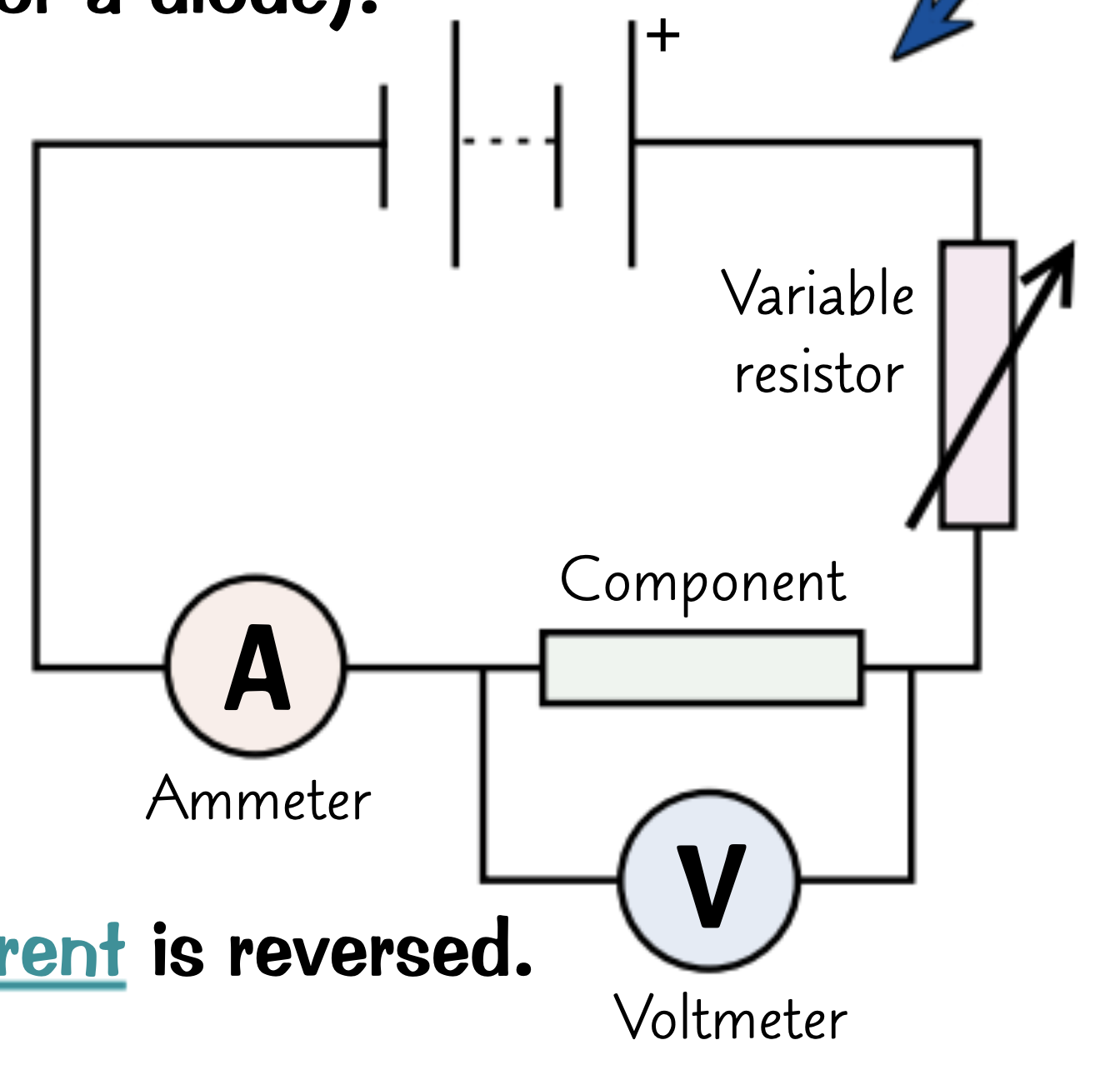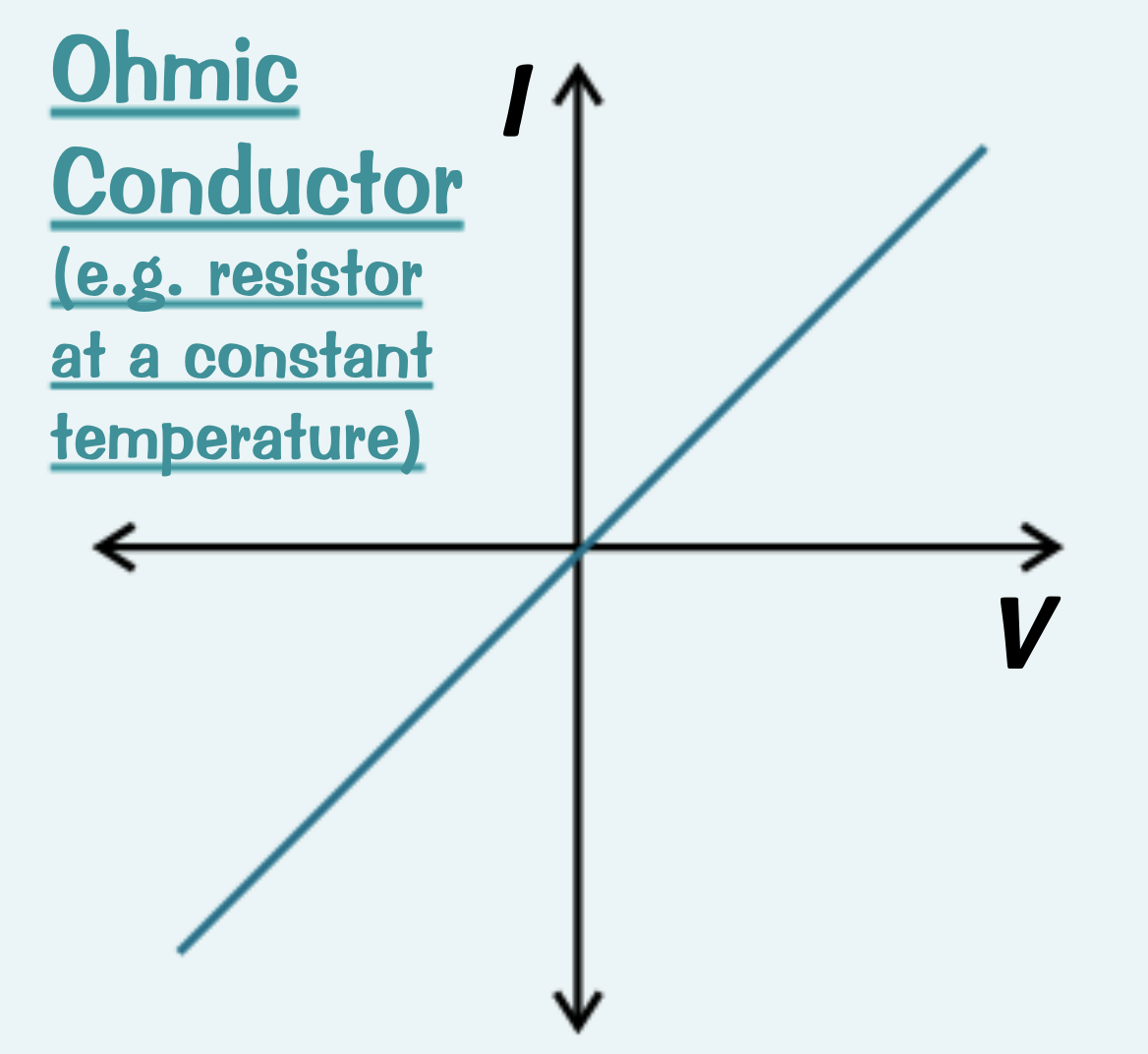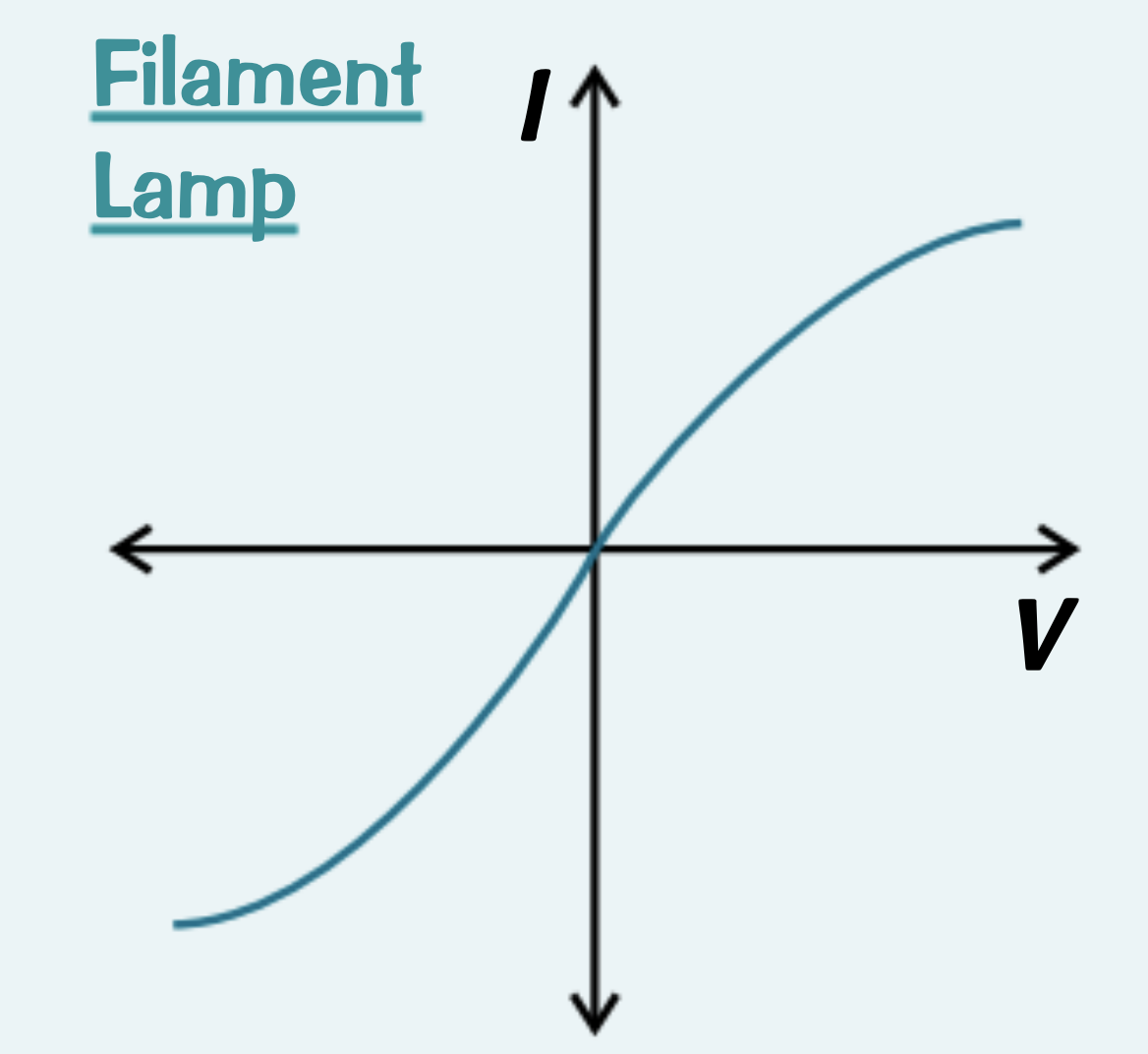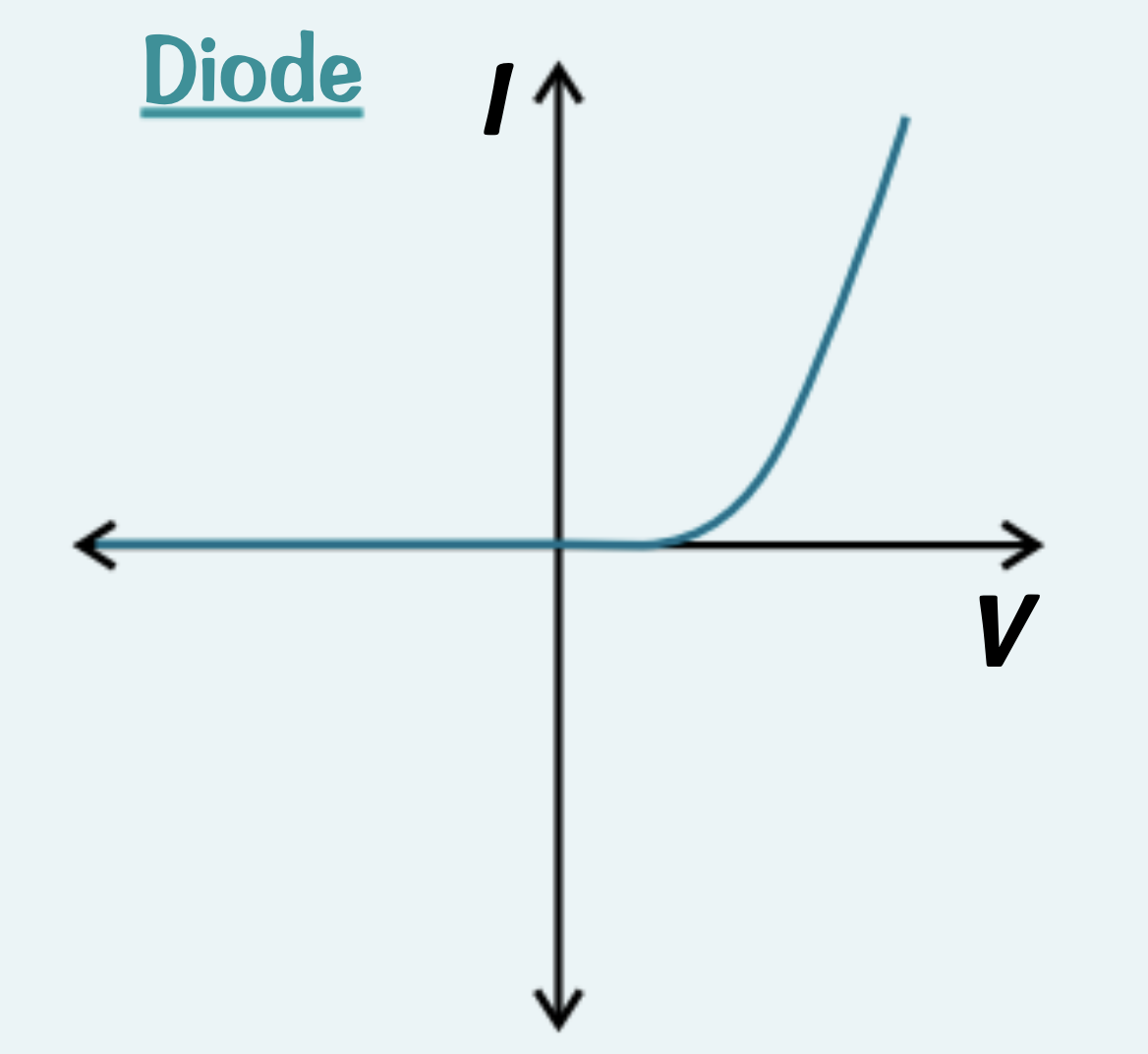Resistance and I-V characteristics
1/8
Earn XP
Description and Tags
Name | Mastery | Learn | Test | Matching | Spaced | Call with Kai |
|---|
No analytics yet
Send a link to your students to track their progress
9 Terms
Explain the relationship between current, resistance and potential difference I ohmic conductors.
The resistance doesn’t change with the current
At a constant temperature, the current flowing through an ohmic conductor is directly proportional to the potential difference across it. (V=IR)
In what resistors or components does the resistance change?
Diode
filament lamp
Explain the relationship between current, resistance and potential difference in filament lamps.
Some energy is transferred to the thermal energy store of the filament which is designed to heat up.
Resistance increases with the temperature, so as the current increases, the filament lamp heats up more and the resistance increases
Explain the relationship between current, resistance and potential difference in diodes.
The resistance depends on the direction of the current.
There is low resistance in one direction, but very high resistance if the direction is reversed
What does I-V characteristics mean?
refers to a graph which shows how the current flowing through a component changes as the potential difference across it is increased
Explain the experiment to find a components I-V characteristic
test the circuit shown in the image
Begin to vary the variable resistor. This alters the current flowing through the circuit and the potential difference across the component
Take several pairs of readings from the ammeter and voltmeter to see how the potential difference across the component varies as the current changes. Repeat each reading twice more to get an average potential difference at each current
Swap over the wires connected to the battery, so the direction of current is reversed.
Plot a graph of current against voltage for the component

What will the I-V characteristic for an Ohmic conductor look like and why?
The current through and Ohmic conductor (at constant temperature) is directly proportional to the potential difference so you get a straight line.

What will the I-V characteristic for a filament lamp look like and why?
As the current increases, the temperature of the filament increases, so the resistance increases. This means less current can flow per unit of potential difference, so the graph gets shallower

What will the I-V characteristic for a diode look like and why?
Current will only flow through diode in one direction, as shown. The diode has very high resistance in the reverse direction.
